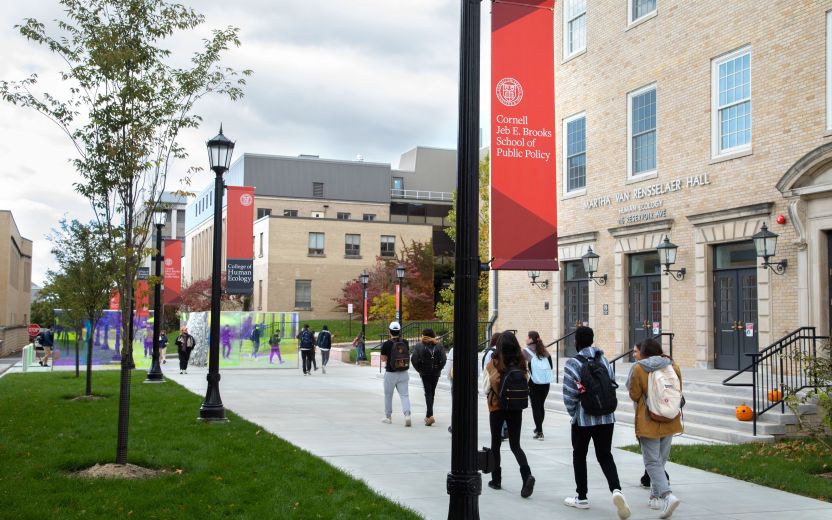Cornell Jeb E. Brooks School of Public Policy

The Brooks School offers you the opportunity to be part of a small, welcoming community while enjoying access to the people and resources of a world-renowned Ivy League institution. You will graduate with the skills to shape and evaluate policy in a range of settings, in the public and private sectors. You will be part of a vibrant school intentionally created to address the problems confronting society now and those that will emerge in the years to come.
College FAQs
Four Advising Areas
Academic Focus
The biggest issues we face as a society demand agile thinking from a diverse range of experts and viewpoints. They require us to pull disciplines together, to collaborate and innovate, and to understand how the policy process works in the real world. The Brooks School is positioned as a source of solutions in these areas of focus: data science and technology policy; environmental and sustainability policy; global security; health policy; politics and economics of development; race, racism, and public policy; social policy and inequality.
Experiential Learning
Learn by doing. Brooks School students have the opportunity to study policy and gain hands-on government experience through a range of programs that will take you far beyond the classroom. Our experiential learning opportunities include: the Brooks School State Policy Advocacy Clinic, Cornell in Washington, Capital Semester, and many more. Brooks students also engage in research with faculty as well as study abroad opportunities, and our honors program.
Community and Belonging
Brooks Faculty Mentors are available to mentor you on your interests in the field of public policy and broader career directions, within the context of the Brooks School curriculum. This includes offering you career development advice within the scope of the mentor’s networks and expertise. Mentors can counsel you on opportunities to engage within and outside of the Brooks School across our programming. Faculty mentors will pull from their research expertise and network to inform you of current areas of research and opportunities in the field, particularly with regards to independent study and honors programming.
Career Exploration
One of the benefits of our Public Policy and Health Care Policy degrees is their flexibility. These majors can be a foundation for careers in consulting, finance, tech, education, health care administration, advocacy, politics, government, and more. You’ll also be prepared to advance your education in a graduate school, including top law schools. You’ll graduate with the analytic, research, and writing skills that will prepare you for a wide range of leadership roles.
